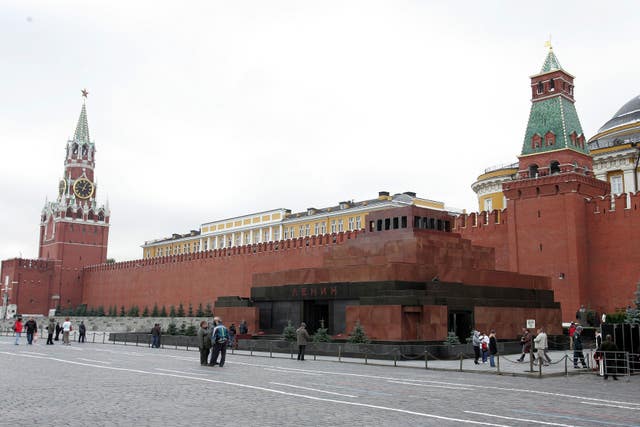Vladimir Putin has submitted a range of proposed amendments to Russian’s constitution that include a mention of God and describe marriage as a heterosexual union.
The president first proposed amending the constitution in January’s state-of-the-nation speech, saying it was necessary to broaden the powers of parliament and bolster democracy.
Opponents have described the proposals as part of his efforts to remain in charge after his six-year term ends in 2024.
The Kremlin-controlled parliament quickly endorsed his draft in the first of three required readings last month, and is set to give it final approval next week, setting the stage for a nationwide vote on April 22.
Following up on proposals from a Kremlin working group that worked in parallel with legislators, Mr Putin on Monday presented 24 pages of additional amendments for the second reading set for March 10.
Legislators say they include an article that points to a millennium-long Russian history and pledges homage to “ancestors who bequeathed to us their ideals and a belief in God”.
Russian Orthodox Church
The amendment follows a proposal by the Russian Orthodox Church to add a reference to God to the constitution.
Another amendment describes marriage as a “union of a man and a woman”, a wording in sync with Mr Putin’s long-stated opposition to same-sex marriage.

He also responded to a working group member’s suggestion to add wording that would prevent any future Russian ruler from giving away Crimea — annexed from Ukraine in 2014 — or any other territory.
He added an amendment that prohibits surrendering any part of Russian territory and outlaws making calls for that.
Another proposal underlines a special status of Russians as a “state-forming” ethnic group while pledging to protect the nation’s other ethnic groups.
Second World War
After proposals to outlaw disparaging the Soviet role in the Second World War, Mr Putin added an article pledging to protect “historic truth” and forbid “belittling the people’s heroic protection of the Motherland”.
The amendment comes as Russia prepares to celebrate the 75th anniversary of victory in the war — the nation’s most important holiday.
The new set of amendments does not offer any clue to what position Mr Putin may take to continue calling the shots after his term ends.
The 67-year-old has been in power for more than 20 years, making him the nation’s longest-serving leader since Soviet dictator Josef Stalin.
Related – Russia’s parliament approves Vladimir Putin’s choice for prime minister

